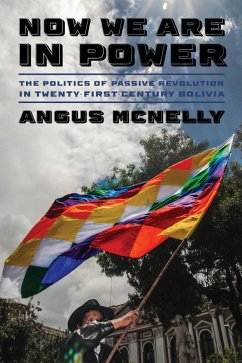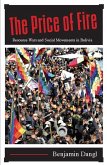During the first decade of the century, Evo Morales and other leftists took control of governments across Latin America. In the case of Bolivia, Morales was that country's first Indigenous president and was elected following five years of popular insurrection after decades of neoliberal governance. Now We Are in Power makes the argument that the so-called Pink Tide should be understood as a passive revolution, a process that has two phases: a period of subaltern struggle from average citizens strong enough to culminate in a political crisis, which is followed by a time of reconciliation and transformation. Angus McNelly examines this movement as it unfolded and evaluates how passive revolution plays out over a prolonged crisis, ultimately demonstrating the inherent contradictions and complications of the process.
Dieser Download kann aus rechtlichen Gründen nur mit Rechnungsadresse in A, D ausgeliefert werden.









